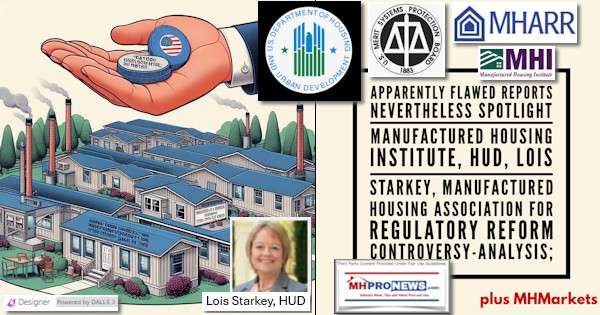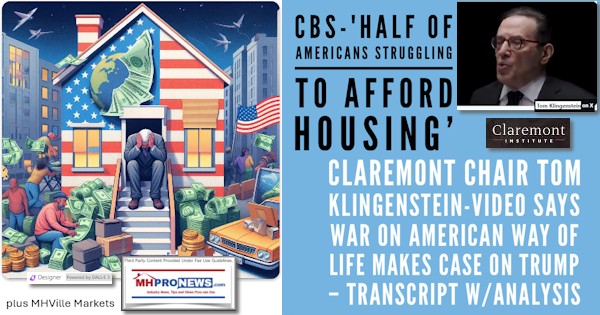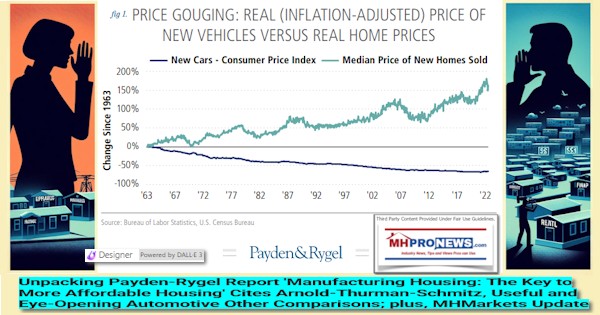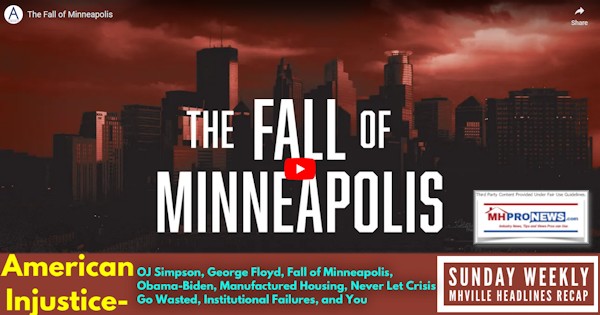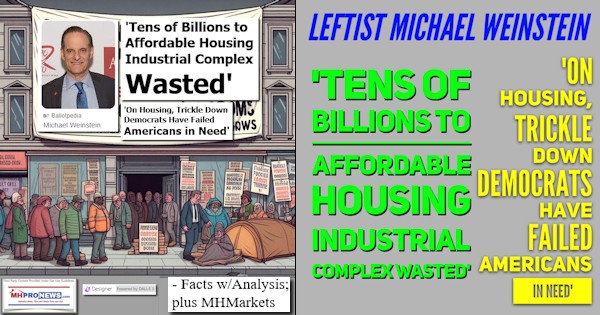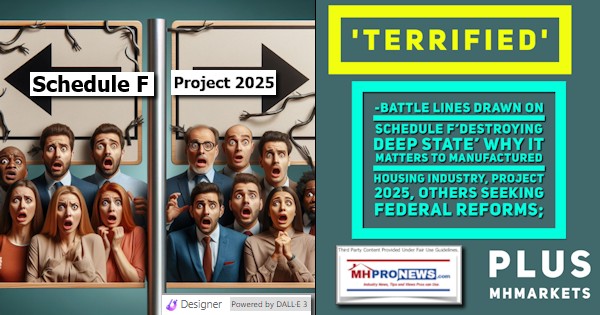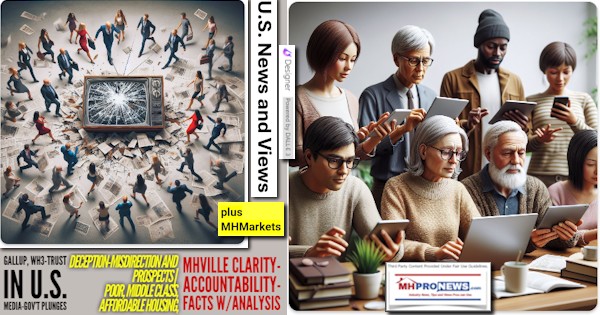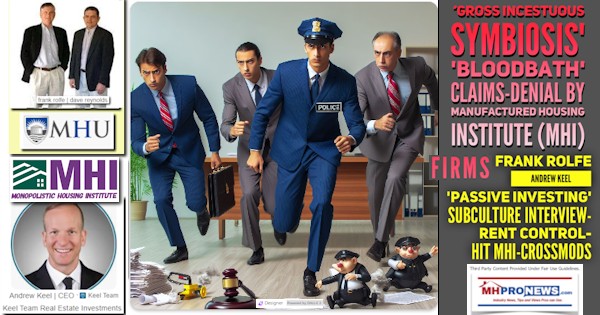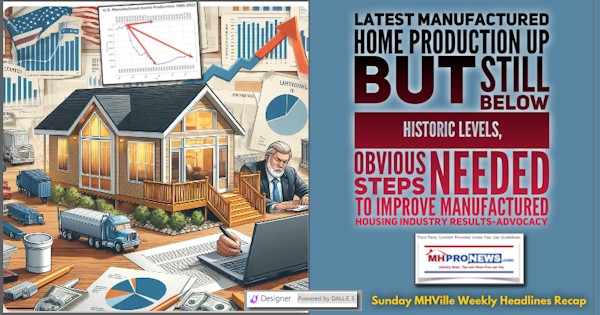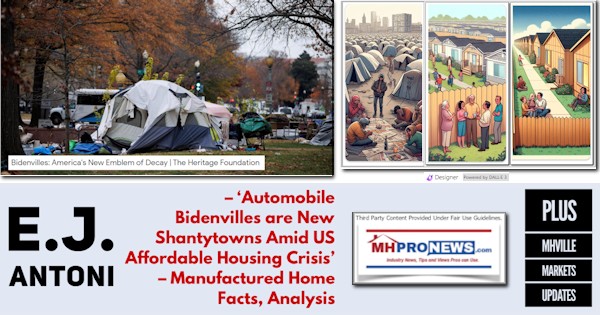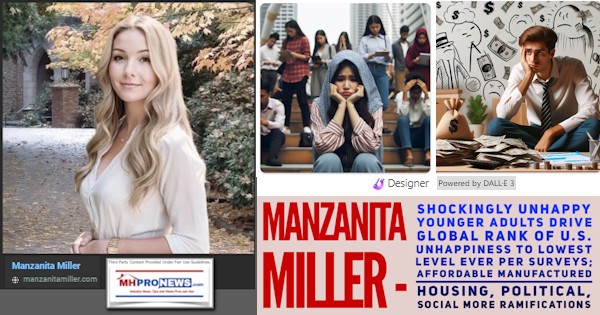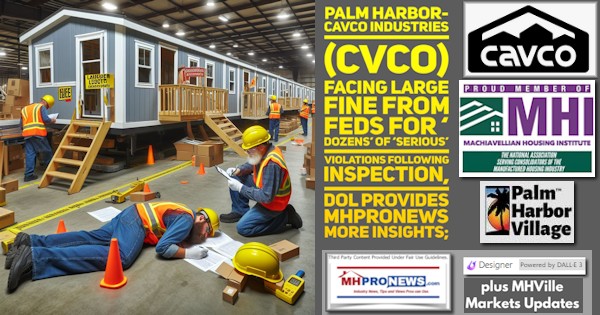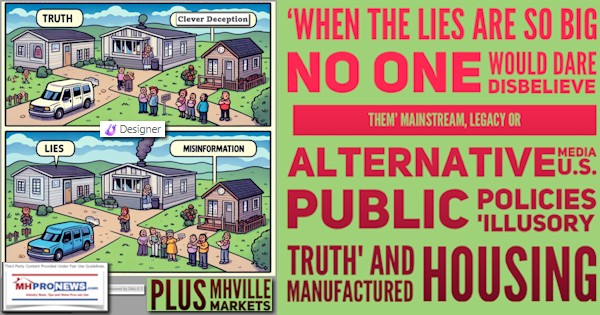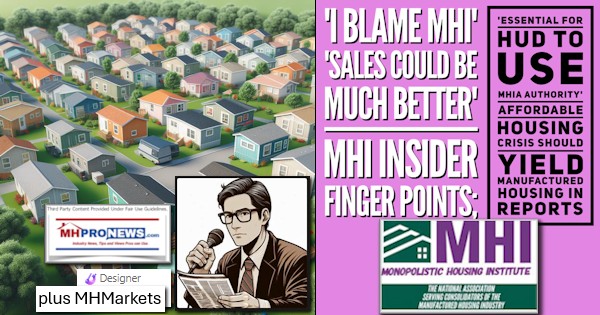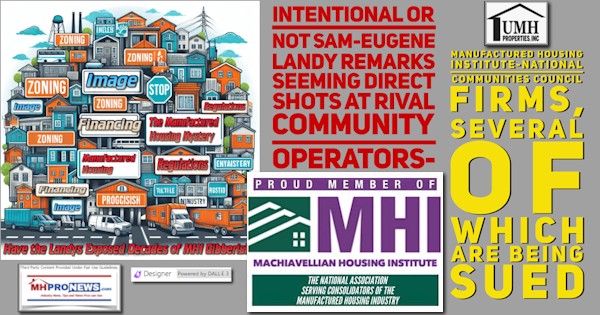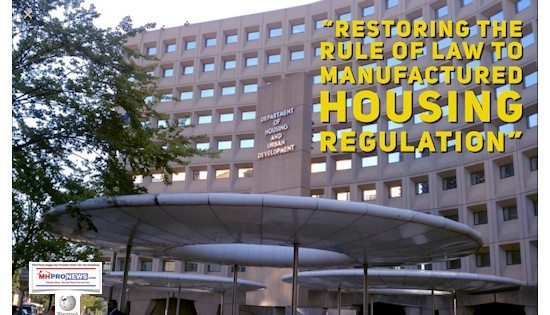
“The rule of law, and the supremacy of law over the arbitrary whims of individuals who happen to wield government power, was a profound concern for the founders who debated and developed the Constitution of the United States. For over two centuries, legal scholars have pointed to the primacy of the “rule of law” in the system of limited government and defined powers established by the Constitution, stating, for example: “The rule of law may be the most significant and influential accomplishment of Western constitutional thinking. The very meaning and structure of our Constitution embody this principle. Nowhere expressed yet evident throughout the Constitution, this bedrock concept is the first principle on which the American legal and political system was built.”
– Mark Weiss, J.D., President and CEO of the Manufactured Housing Association for Regulatory Reform (MHARR).
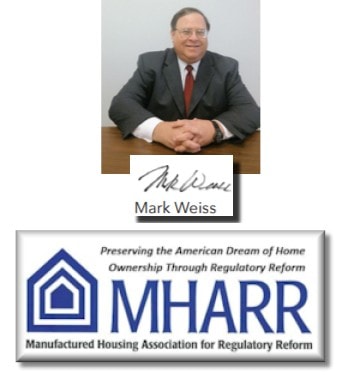
“While this is a major socio-political issue with ramifications that extend far beyond the scope of this column, federally-regulated manufactured housing faces challenges of its own regarding the rule of law, and with a new Administration – with a new regulatory philosophy — now in place, there is no time like the present to clearly address this issue within the unique context of manufactured housing regulation,” said Weiss.
“In the manufactured housing arena, the most fundamental expression of the primacy of the rule of law is the Manufactured Housing Improvement Act of 2000,” Weiss said
It’s a theme that MHARR, and editorially MHProNews, have held for years.
“Indeed, the 2000 reform law is a direct outgrowth of – and a direct congressional response to and remedy for – administrative abuses that had piled-up within the federal manufactured housing program over the first quarter-century of its existence. These included, but by no means were limited to:
(1) de facto rulemaking by “interpretation;”
(2) circumventing, evading, or ignoring notice and comment requirements;
(3) abuses of the “Interpretive Bulletin” process;
(4) closed-door standards development activity;
(5) non-consensus standards development;
(6) contracting abuses resulting in a non-competitive, de facto “sole-source” program monitoring contract, the same monitoring contractor for the (now) entire 40-year-plus history of the program, and the delegation of governmental power to an unaccountable private entity; and
(7) activity to subvert the operation and objectivity of the former Manufactured Housing Advisory Council, and a host of other actions that undermined the basic fairness, reasonableness and, ultimately, legitimacy of the federal manufactured housing program.
Weiss, an attorney known for being detail-oriented, got into the weeds in his analysis.
He also commented on the “Deep State” style “subversion” of the HUD Code program.
“Just as importantly, through nearly every step of this decade-plus subversion of the 2000 reform law, “deep state” regulators at HUD have been aided and abetted by “institutional” program contractors – i.e., de facto sole-source contractors, such as the program monitoring contractor – which constitute a “deep state” of their very own, wielding unlawfully-delegated and largely unaccountable governmental power, together with a built-in incentive to continually expand both the scope and cost of regulation, thereby increasing their own power and influence and, not surprisingly, their contract revenues,” stated Weiss, adding that “This needless regulatory expansion, in itself, has excluded hundreds-of-thousands of Americans from the benefits of manufactured home ownership, based on studies conducted by the National Association of Home Builders (NAHB), and has unnecessarily slowed and stunted the industry’s recovery from its modern production low in 2009, disproportionately harming smaller industry businesses. Nor does the industry itself escape part of the blame for this activity, as far too many of its largest corporate conglomerates – and their representatives — have provided protection and “cover” for the HUD status quo and program “leaders” who have gone to extraordinary lengths to undermine the most important elements of the 2000 reform law.”
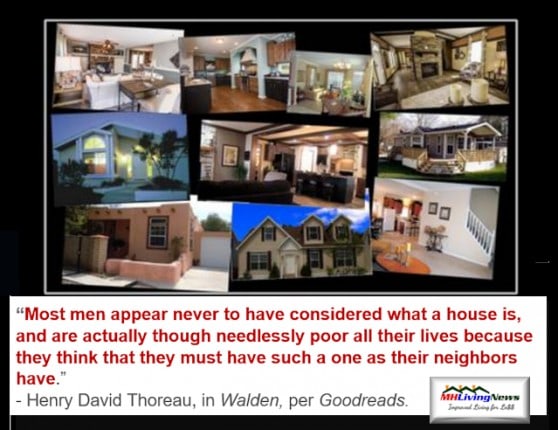
“The change in presidential administrations, however, has opened the door to potential remedies for this fundamentally lawless regulatory activity. In particular, the Trump Administration’s “top-to-bottom” review of HUD’s manufactured housing regulations and “regulatory activities,” under Executive Orders 13771 (“Reducing Regulation and Controlling Regulatory Costs”) and 13777 (“Enforcing the Regulatory Reform Agenda”) provides a viable basis for action to repeal both the 2010 HUD interpretive rule and the slew of “field guidance” and other sub-regulatory mandates issued by HUD based on the Department’s unlawful construction of section 604(b)(6),” wrote Weiss.
“And indeed, MHARR in its February 20, 2018 regulatory review comments to HUD, specifically urged the program to return to the rule of law, through the withdrawal of the 2010 interpretive rule and all of the program’s sub-regulatory mandates issued without MHCC consideration and notice and comment rulemaking.”
“This effort…received a major boost when the U.S. Department of Justice notified federal agencies, through memoranda issued on November 16, 2017 and January 25, 2018 that it would no longer enforce administrative “guidance” documents issued without notice and comment rulemaking. In part, the Justice Department stated: “Guidance documents cannot create biding requirements that do not already exist by statute or regulation. Accordingly … the [Justice] Department may not use its enforcement authority to effectively convert agency guidance documents into binding rules. Likewise, Department litigators may not use noncompliance with guidance documents as a basis for proving violations of applicable law…” said MHARR’s president.
For the full, unedited MHARR release, please click here. “We Provide, You Decide.” © ## (News, analysis, and commentary.)
(Third party images, content are provided under fair use guidelines.)
Related Reports:
“Why Advocates Need to Rethink Manufactured Home Quality,” Harvard, GSE, Genz, “High Satisfaction”

1) To sign up in seconds for our MH Industry leading emailed news updates, click here.
2) To provide a News Tips and/or Commentary, click the link to the left. Please note if comments are on-or-off the record, thank you.
3) Marketing, Web, Video, Consulting, Recruiting and Training Resources








